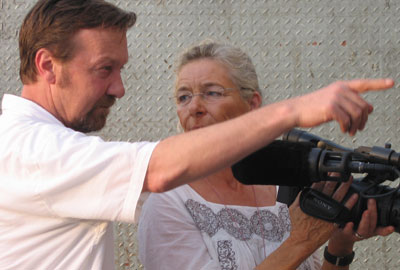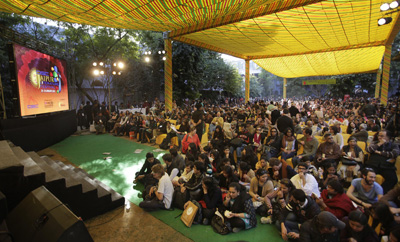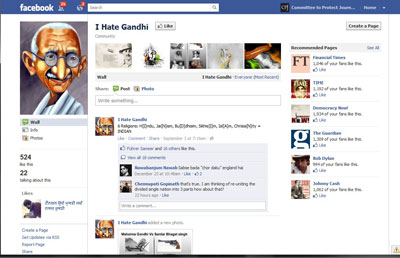Old issues, new debates on Internet freedom in India
Just how free should the Internet be in India? And whose job is it to police the Web? Two recent court cases turn on these questions and, more specifically, whether Internet companies have a responsibility to filter content. In a country where Internet usage is growing exponentially, but where the scars of communal violence, terrorism,…

India: Let us in!
In 2005, we deliberately violated the immigration laws of India. We broke the law by producing a documentary film even though we had entered the country on a tourist visa. We broke the law because we wanted to show that Scandinavian companies were in violation of many other laws in India.
What’s behind India’s Internet censorship?
We have been posting a lot about the challenges facing the Internet in India recently–see Mannika Chopra’s “India struggles to cope with growing Internet penetration.” On Tuesday, Angela Saini, a guest blogger on The Guardian’s Comment Is Free site, posted “Internet censorship could damage India’s democracy,” with the subhead “Google and Facebook have been asked…

India’s challenge: Intolerance vs. intellectual freedom
Because of criticism from Hindu fundamentalists, the showing of a documentary by filmmaker Sanjay Kak at the Symbiosis College of Arts and Commerce in Pune has been indefinitely postponed. The conservative student organization Akhil Bharatiya Vidyarthi Parisha protested Kak’s film, “Jashn-e-Azadi” (How we celebrate freedom), which is critical of the Indian army’s role in Kashmir.…
Can an Indian cartoonist be barred from mocking the state?
The case of a cartoonist charged with treason and offending India’s national sentiments reflects a growing debate over what constitutes freedom of expression in India. His accusers argue that while it is permissible to make fun of politicians, you cannot make fun of the state. Not everyone agrees.
Oprah’s guards not only ones to assail Indian journalists
Oprah Winfrey’s first visit to India brought delighted coverage by the Indian media. Her meetings and tweetings with Bollywood stars, her bright orange sari, and her trips to slums and to the Taj Mahal were lovingly detailed by newspapers and TV outlets in that country.

India struggles to cope with growing Internet penetration
As Internet penetration deepens, largely religiously and socially conservative India is struggling to cope with concerns about controversial web content and its easy accessibility to a vast population, all with little oversight. Local courts have become the launching point for some of the anti-Web offensives.
Policing the Internet in India
Amid a raging debate on Internet freedom and censorship in India, members of the government met last week with a clutch of website operators, including representatives of Yahoo, Google, Facebook and Microsoft. In a meeting scheduled to address a wider plan to leverage social media to empower the government, it’s unclear whether the touchy subject…